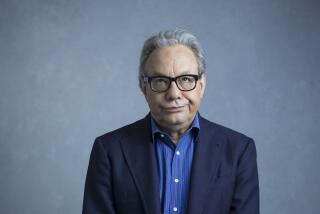Regis Philbin leaves ‘Live’: How does health fare in retirement?
- Share via
Regis Philbin is saying goodbye to “Live! with Regis and Kelly” this week. While we’re not sure the 80-year-old will immediately segue into full Barcalounger-style retirement, he should know there are some health risks and benefits that go along with leaving the working world.
Reeg may find he has more energy. Researchers looked at health data on 11,246 men and 2,858 women for seven years before and seven years after retirement for a 2010 study in the British Medical Journal. Retirement was linked with a significant drop in mental fatigue and physical fatigue as well as symptoms of depression. However, the incidence of chronic health conditions such as diabetes and cardiovascular disease went up with age.
The octogenarian might start sleeping better. A 2009 study in the journal Sleep looked at the sleeping habits of 14,714 retirees (most of them men) who worked at the French national gas and electric company. They were surveyed about sleep disturbances for a period ranging from seven years before retiring to seven years afterward.
Before the employees retired, 22.2% to 24.6% said they experienced disturbed sleep. But following retirement, sleep improved significantly and stayed that way. More improvements were seen in men than women, and in higher-ranked workers rather than lower.
But the TV personality may want to keep an eye on his drinking. A 2011 study in the journal PLoS One found that retirement could be the catalyst for a temporary increase in heavy drinking. Researchers looked at alcohol consumption for five years before and after retirement among 10,023 men and 2,361 women who were part of a French study.
Before retiring, heavy-drinking frequency was 16% among all men surveyed, regardless of job status. For women, the prevalence was 19.5% among managers, 14.7% among those with midrange jobs and 12.8% among clerical workers.
Around the time of retirement, heavy drinking increased among men and women--perhaps because of the extra leisure time--and dropped over the next four years. Among men the decline was not significant among manual workers, and for women the decrease was seen in non-managerial jobs.
While the researchers couldn’t say if the same statistics would hold true for other groups of working people, they did note that pre-retirement planning programs should include information about the health effects of alcohol.
Although Philbin is stepping down later than most people leave their jobs, he could be part of a trend. A Wells Fargo retirement survey released this week reported that 25% of middle class people in the U.S. said they’d need to work until at least age 80 in order to have a comfortable retirement.
That co-hosting spot is still open.






